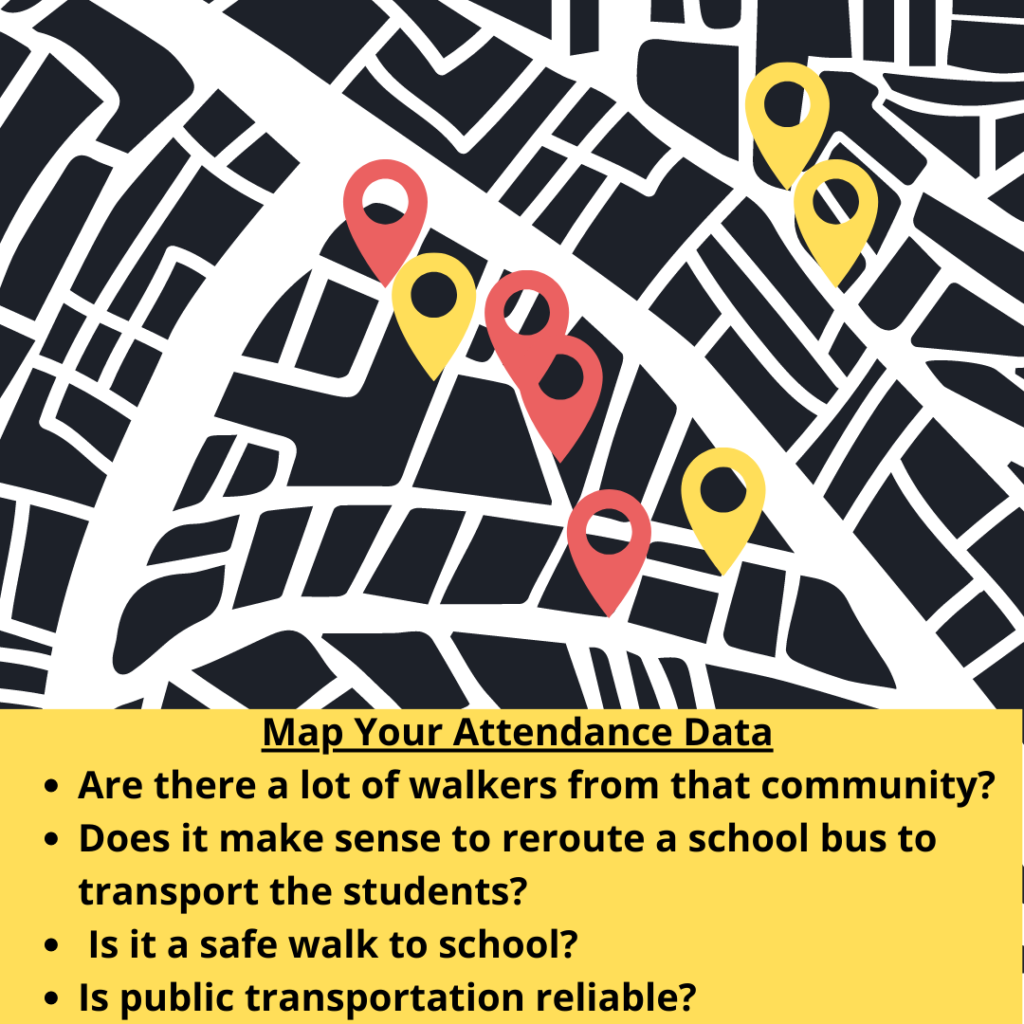Develop Interventions to Support Small Groups
As educators, we want to provide the best possible support to our students. Multi-tiered Systems of Support (MTSS) are a great way to do that. MTSS can help schools provide targeted interventions and support to students who need additional assistance to succeed academically, socially, or behaviorally. Applying an MTSS lens to your intervention work encourages a more strategic plan and deliberate allocation of resources.
Whether it’s a tricky commute down muddy secondary roads to the closest bus stop or a bus route cancellation because of a driver shortage, traveling between home to school can be a barrier to student attendance. Transportation is often one of many root causes contributing to chronic absenteeism. Ensuring transportation to school for all students is a foundational part of universal support for school success.
Data helps educators identify areas where students need support and develop MTSS interventions that will best meet those needs. Looking at the geographical distribution of students who are experiencing attendance challenges can provide insight to neighborhoods that might have increased levels of support. That data can help identify safe routes to school and areas of need.
By mapping the routes that students take to get to school, we can identify areas where bus stops might have limited access or there might be safety concerns like crossing major roads. Mapping attendance data along those routes might also illuminate a bus with more frequent cancellations. This information can be used to develop interventions that address these contributing factors to accessing school, such as improving crosswalks, shifting routes, or implementing a walking school bus program.

We can also use data to identify areas where students may face additional challenges outside of the classroom so we can develop interventions that address these broader needs. This may include providing social-emotional support, mental health services, or other resources that can help our students thrive both inside and outside of school. Check out the Neighborhood Atlas or the Climate and Economic Justice Screening Tool to see community level data like socioeconomic status or population density mapped for your area.
Mapping data is just one way to uncover patterns and trends that can inform targeted interventions. One of the great things about MTSS is that it allows us to monitor the progress of our interventions and make adjustments as needed. Use data to measure the effectiveness of our interventions and drive informed decisions whether interventions are working, need to be modified, or need to be discontinued. If you need help setting up a system to flag students for intervention or to track interventions, reach out to us!
Let’s continue to work together to create a kinder, more equitable education system that meets the needs of all of our students.
